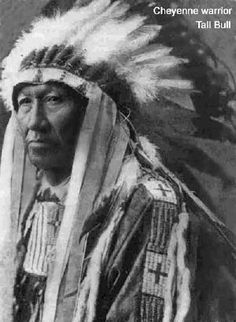
Dismantling Colonialism: A Treatise on Forgiveness
While I quite enjoy Aimé Césaire’s Discourse on Colonialism, it is incomplete. Just as Césaire so deftly identifies the corrosion of the colonizer’s spirit in the process of colonization, I argue that an equal moral corruption occurs within the colonized if we do not forgive and work for humanity’s universal rehabilitation.
Césaire discusses at length how colonizing groups compromise their humanity when they condone the suffering of colonized peoples. It would logically follow, then, that I too am dehumanized if I condone the suffering of colonizing nation. Do we believe in the equality of human beings? If so, then isn’t every form of suffering equally abominable? Or is the suffering of a perpetrator permissible? Perhaps, even, desirable? Césaire’s clarion call to Europe to regain its senses, its humanity and its heart, should, by implication, be extended to us all to lament the suffering of perpetrators (as in the rise of Hitler), lest we all be lost to callousness.
Césaire does not explicitly revel in the way Hitler gives Europe “a taste of its own medicine.” Neither, however, does he explicitly mourn it, which I think is in order. He writes, “a nation which colonizes…progressing from one consequence to another, one denial to another, calls for its Hitler, I mean its punishment.” His statement indicates he may find some satisfaction in the boomerang effect of colonization. At least, we can say, he posits that Hitler-type situations are an unavoidable consequence of colonizing behavior. He seems to say: ‘Well, Europe, I’m sorry you are all burning in chambers; it is what must happen when you do what you’ve done.’
It is undeniable that abuse also damages the abuser. They experience the most horrific form of suffering there is: a departure from the state of compassion (a day without love is a thousand years). Still, I encourage us to resist assuming a consequentialist, defeatist attitude. In other words, we should not assume that perpetrators are intrinsically doomed to punishment in the form of self-destruction, or that they “should” be. Indeed, there exists an exquisite social gift that allows humanity to catch the boomerang in mid-air—a strange, almost supernatural technology that shocks and rocks the world each time it is given. There exists the elusive salve of forgiveness, which liberates the colonizer and the colonized from the chains of hatred.
I should be clear on my definition of forgiveness so the rest of my argument is not confused. Forgiveness here does not mean that colonization is “okay.” Nor does it not passively condone rape as “not such a bad thing,” or the complete ransacking of the earth as tolerable. On the contrary, forgiveness implies that something truly horrific has occurred, thus the need to forgive. Forgiveness here is defined as the act of responding to hatred with love. It does not deny the atrocity of the colonizer, and yet it does not hold this atrocity against the colonizer. A metaphor for this definition is a mother that advocates for the liberation of a prisoner who has murdered her son. Another would be a son who advocates for the liberation of a prisoner who has murdered his mother.
Such pardoning has become unthinkable in a society enraptured by the paradigm of punitive justice. But when we pry deeper into the nature of suffering we see how we enact the very heartlessness we condemn when we incarcerate others, thus losing double the humanity. What’s worse is sometimes these losses birth new losses, and new losses, and new losses again, in an inter-generational cycle of hatred and violence.
Some might say we are “keeping the streets safe” through the incarceration of perpetrators. But whose place is it to inflict suffering on one human to “prevent” the suffering of another? Furthermore, does the strategy of punitive justice even work to lessen suffering? Or does it, as we have seen, engender more and more crime and self-destruction within society? These are important questions Césaire does not begin to address.
It would be disingenuous for me to discuss forgiveness as if my opinions weren’t rooted in profound personal experience. My entire being is pierced with sorrow and regret when I recall the depth of suffering I have caused: people knocking on my door at 3 A.M. for one more hit of speed; distributing ecstasy pills at parties when I knew full well it would lead to the sexual abuse of women too-far-gone to resist; selling psychotropic chemicals to unstable students, knowing their whole world would crumble all around them once ingested—all so I could erect petty stacks of cash in my drawer. Indeed, I have created and exploited the addictions of precious people in the same way colonizers have created and exploited the trauma of colonized peoples.
How could a person who has committed such atrocities step into the light of day? What could I ever do to redeem even just one instance of sexual abuse I have enabled? How could I have become so infatuated with the smell of currency or the act of counting it? Am I forever doomed to implosion, as Europe is to Hitler, and America to Trump? Or is another fate possible for such despicable, broken souls like me?
It is unfathomable how my behavior somehow led to the birth of a leader; the birth of youth sobriety movements, which grew and branched out into 35 communities in 13 countries. How could someone like me come to construct such a movement? How could such dead, foul scraps be composted into such life-affirming beauty and growth?
Well, even after all I had done to destroy human bodies for profit, a whirlwind of inexplicable happenstance and good fortune flooded my life. An incredible support system rushed to my aid and I became sober—a miracle if you had known me in those times. More and more teachers came to engulf my sorrow in this sweet thing called forgiveness. Implicitly, these experiences beckoned me to the light of day, despite the infinite weight of my shame.
To be pardoned, to be liberated, to be restored, to be forgiven—the same justice colonized peoples must administer to colonizers (as if we were to judge); The same justice colonizing peoples must administer to themselves. Not only is this the most honorable justice, it is the most productive. It has the power to transform perpetrators into leaders of peace. It is the justice I am forced to administer to myself each new day, lest the burden of shame crush me into nothingness, for which the world would suffer all the more.
Even still, some conflate forgiveness with insanity. It is contrary to Western custom. It is bold, challenging, counter-intuitive, and, some might even say, atrocious in its own way, to free bona fide criminals like me. But woven into the horror story of tens of thousands of years of human suffering, there is nothing more illogical than cyclically perpetuating that which we condemn, unto others and unto ourselves. This reflexive healing process (for condemnation of others births condemnation of self, and forgiveness of others births forgiveness of self), provides escape from the paradox of punitive “justice.” When we bring the flowers of compassion to the doorstep of a hangman, we not only embody the behavior we beg him to adopt, we also provide a gift so exquisite it shakes him to his core. This shaking, I can attest, can generate a profound transformation for the perpetrator. After this great change, she works fiercely and incessantly to relieve suffering, when just months prior she freely exploited it.
Some may say that to liberate the oppressor of their consequences is to reinforce the unequal treatment of criminals and innocents. In other words, why should colonized countries continue to languish when their profiteers are released from consequence? Even if the oppressor does not change their behavior and the colonized nation remains in poverty, we must still work for the moral restoration of all. In other words, even in the midst of inequity and injustice we must forgive. Only when we love in the face of hatred are we liberated from that same hatred. Only when we love in the face of hatred can we loosen the screws of the machine of oppression. For who stands unphased in the face of grace? Only the expertly numb. The rest of the world, the majority, trembles in the best of ways. They are shaken. They are inspired. They are transformed. They are forgiven.
It is all well and good to advocate for forgiveness in the face of the atrocity of colonization, but what does this look like in concrete terms? It can be as simple as publicly praying for businessmen and bankers, as so many have done in the No DAPL movement of the Standing Rock Sioux Tribe. It can be as complex as holding ceremony in Europe for the millions of souls affected by witch-hunts and disease epidemics in medieval Europe, as my mother, Pat McCabe, has in recent months. It can be as bold as Mandela’s pardoning of the very men who attempted to destroy him. It can be as insane as Tall Bull restraining a headstrong Cheyenne warrior intent on murdering an U.S. army general. It can be as profound as Zarcillos Largos pulling his Diné brethren off the throats of Spanish and American settlers, who just years before raped his sisters and burned his squash fields. There are many beautiful ways to forgive. It is incumbent on us all to hatch these creative schemes to disseminate forgiveness and liberate the world from shame (the mother of personal, and in turn societal, disease).
In this way, some have said, we win the most important victory: the victory of the heart. Indeed, I would rather them put a bullet in my head while I have a prayer on my lips, than live with my oppressor underfoot and hatred in my heart. In other words, I do not seek a victory of brute strength or economic strength. I seek a truer victory; a victory of moral strength.
In sum, while I do think Césaire’s work deserves its place as a literary classic, I also feel he leaves us hanging in a most detrimental way. Instead of offering a paradigm that ceases cycles of suffering, he implicitly beckons us to hop on the bandwagon of dehumanization, offering no “way out” for perpetrators and their “victims” from a cycle of disdain. Sure, there are moral and therefore social consequences for a group that engages in the folly of conquest. But then what? Where do we go from there and how? Are we all simply doomed to an identity of barbarity? Or is there some force that can restore the dignity of humanity? It seems quite clear that the road to positive social upheaval, the panacea for colonial conundrums, lies in the alchemy of forgiveness. In such a spirit, I forgive Césaire’s omission of this important dimension, as we should forgive ourselves for not knowing when and how to forgive. And even if I did condemn Césaire for missing this important point, I would forgive myself for that as well to restore my truest nature: the nature of weightless compassion.
*In response to “Discourse on Colonialism” written in 1950 by Aimé Cesáire, and a French-speaking African man from the island of Martinique. Photograph is of Cheyenne ancestor Tall Bull, who restrained a young warrior from killing American General Winfield S. Hancock during council.

